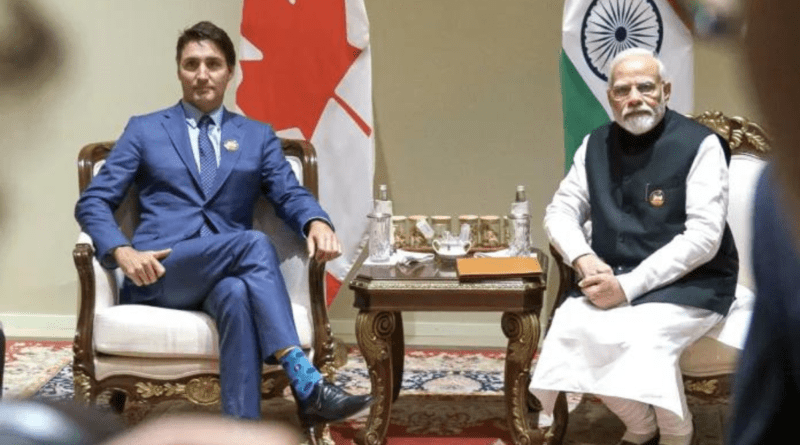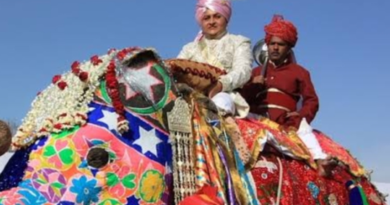Exclusive: Canada Makes The Best ‘Workshops’ For Indian Officials
With Prime Minister Justin Trudeau accusing India of aiding in the death of a Canadian, experts are urging Canada to reduce tensions, and Ottawa is resorting to the realm of flow charts and slideshows.
Even as tensions over Sikh separatism rise, Canadian officials are offering their Indian counterparts “workshops” on the rule of law, at least as Canada understands it.
This month, senior official Weldon Epp told MPs, “How India defines extremism or even terrorism does not always compute in our legal system.”
When Sikh community leader Hardeep Singh Nijjar was fatally shot in June of last year in Surrey, British Columbia, his supporters promptly pointed the finger at India.
Like a few other members of Canada’s sizable Sikh community, he supported the establishment of Khalistan as an independent state.
The shocking news that Canadian intelligence services were “pursuing credible allegations of a potential link” between Nijjar’s killing and the Indian government was revealed by Trudeau in September.
Since then, Canadian officials have urged their Indian counterparts to cooperate more, alleging that Canada is not offering enough proof.
This month, Epp, who is in charge of Canada’s diplomacy in the Indo-Pacific, told a parliamentary committee that not much more will come to light until the RCMP is ready to file charges.
An indictment alleging that an Indian ambassador conspired to order the death of another Sikh separatist was released by US authorities in November. Although the scheme was thwarted, American police claimed to have discovered proof of plans to kill Canadians, including Nijjar.
According to Epp, Canada and India have “long-standing exchanges” regarding counterterrorism; yet, what New Delhi views as extremism in Khalistan doesn’t always fit the Canadian standard.
For instance, in the last ten years, Canada has twice decided against extraditing Nijjar to India due to allegations that he was involved in a movie theatre bombing and an accused terrorist camp.
Following Trudeau’s charge, India has reduced Canada’s diplomatic presence, temporarily halted granting Canadian visas, and led Canada to pause trade negotiations. Adding insult to injury, a Canadian investigation into foreign influence named India as a possible source of meddling.
Sushant Singh, a senior researcher with the Centre for Policy Research in New Delhi, stated that Indian Prime Minister Narendra Modi has been advocating more forcefully for Canada to take severe measures against Sikh separatism.
Waves of violence between separatist mobs and the Indian government in the 1980s shaped members of Modi’s own close circle, including his national-security adviser, Singh claimed.
Certain individuals associated with violent crimes, such as the 1985 bombing of an Air India flight, are publicly worshipped in certain Canadian temples.
Canada, however, is adamant that it will not censor speech.
According to Singh, Modi wants to demonstrate to the world that India cannot be bullied abroad while simultaneously strengthening his position of authority at home by repressing religious minorities and freedom of speech.
If anything, some Hindu nationalists who support Modi are in favour of extraterritorial killings.
There have been accusations against other Indian diplomats for behaviour that violates international accords.
An Indian diplomat was found guilty in Germany in 2020 of spying on supporters of Sikh and Kashmiri causes. Comparable incidents in the US and the UK resulted in no charges being brought.
There has been “a significant walk-back on India’s part,” Singh added, even though Canada’s friends seem to think Trudeau’s accusations have some validity.
From a categorical standpoint, New Delhi now states that extrajudicial executions are against official policy.
“It actually showed that they may be worried,” he said, adding that India might finally choose to attribute the murder to renegade elements. If sufficient pressure builds, this could indicate the implementation of additional checks and balances for external intelligence services.
According to Singh, this means that any workshops Ottawa is providing on the rule of law should be interpreted as an attempt at helpful assistance rather than as an attempt to “browbeat” or “embarrass” India.
According to Macdonald-Laurier Institute fellow Vijay Sappani, it’s time for both parties to work towards mending trade and diplomatic relations.
He added that they shared many commonalities, including diaspora linkages, nuclear energy partnerships, and Commonwealth principles. There are plenty of trade opportunities: India is interested in Saskatchewan’s potash, lentils, and uranium.
Sappani felt that the Liberals’ promise to have more secret diplomatic talks with India in the wake of the Nijjar disclosure was a good move. He claimed that using public criticism to get points simply serves to exacerbate the situation.
He stated that India will require “a long-term solution on the glorification of Khalistani terrorists in Canada” in order to make significant headway and that the Liberal administration must cease using the pretext of free expression, as Indian MPs have charged.
All political parties in Canada, Sappani added, use political posturing around Sikh concerns to garner votes at all levels of government. Sappani went on to say that the prime minister should refrain from unduly pressuring India because some of his remarks have hurt Canada’s standing, even if they haven’t had much of an effect.




